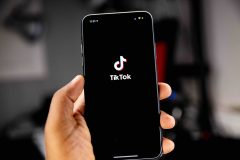When Facebook Places launched in August, the media wasted little time in calling game, set and match on Foursquare and its location-based social network (LBSN) brethren. With over 500 million users, the theory went, Facebook would become the most popular check-in service due to its sheer size alone.

While Facebook hasn’t released any initial stats regarding the number of users or check-ins being generated through Places thus far, personal and anecdotalexperiences from early tech adopters suggests the uptake hasn’t been significant. Having survived the unveiling of Places by growing its own user base from 3 to 4 million users in less than two months, and with plenty of money in the bank, Foursquare has a shot at growing beyond its early-adopter community and becoming a mainstream network. So how does Foursquare become the next Twitter and not end up like Friendster?
Guest author Alex Calic is a consigliere to entrepreneurs, currently working with The Media Trust, having previously worked with Clearspring, InPhonic, Coremetrics and InTouchPOS. Alex covers adtech, commerce, mobile, social and video on his blog alexcalic.com and on Twitter at @alexcalic.
Make A Few Enemies (If You Want 500 Million Friends)
The launch of Places was a direct shot at Foursquare by Facebook. To return the favor Foursquare should go after Facebook’s core audience of college students (something I suggested to Foursquare CEO Dennis Crowley in a conversation last year). Beyond revenge, this actually makes a lot of sense if you remember that Facebook’s success was built on its ability to capture the college crowd before opening up to other audiences.
Now considering that 1) with 165 million Facebook users in the U.S. alone there is bound to be some backlash by young adults against parental “friending” as well as overall loss of interest in the platform, and 2) Foursquare’s raison d’etre is to help people find new things to do in cities, Foursquare can offer college users a unique experience.
Students who already use Facebook now have the chance to create a new, curated social graph based on people they want to interact with socially – and one that doesn’t include their parents. By leveraging Foursquare’s discovery element, which the company has started rolling out across several campuses with the launch of Foursquare for Universities, students can develop relationships based on sharing new experiences.
The result is the creation of a real social network – one that occurs in the real world and not just online or through social games. Facebook is accurate in not calling itself a social network as it operates more like an ambient network, one that allows people to communicate and interact with their accumulated social graph from afar. Because Foursquare’s purpose is to enable face-to-face social interaction it has the opportunity to become the place where your real friends are, i.e. people who you’d actually want to grab a drink or hang out with if you knew they were nearby.

This statement can’t honestly be made by anyone trying to socialize beyond Dunbar’s number on Facebook. Time will tell if Facebook’s just announced Groups rectifies this situation or is too cumbersome for average users to implement. If not, they can resort to playing dirty by enforcing their newly granted LBSN patents.
Show Me The Money (Or At Least a Discount)
Not to be lost in the social aspect of Foursquare’s service is the underlying business opportunity. While mayor-ships and virtual badges have been the drivers of Foursquare’s early successes (to a maniacal level in some instances), I agree with early stage investor Dave McClure, though not in such eloquent terms, that game mechanics will only take LBSN’s so far, and that tangible financial rewards are how these networks can turn into more mainstream services.
That’s not to say that Foursquare should abandon its game mechanics. In fact the social activity driven through these features of Foursquare’s service should be leveraged by local businesses because these mechanics can create the right type of incentive structure. Local merchants are eager to tap into in-discretionary spending habits (especially those of college kids), but in a cost-efficient manner that creates loyalty beyond just the initial lead generation. In the same breadth, consumers are interested in deals at local establishments – especially promotions they can opt-in to. That’s where leveraging Foursquare’s Swarm Badge to drive group participation makes sense.
The concept around Swarm Parties, in which businesses offer discounts to customers once a minimum number of users have checked-in on Foursquare in a given time period, has proven to be effective in increasing sales for local businesses in both the U.S. and overseas. This hasn’t been lost on the likes of recently launched GroupTabs, which is looking to provide group discounts for local merchants by combining the check-in features of Foursquare with the deal incentives of Groupon.
While Groupon itself has shown how effective it can be in driving one-time sales for local businesses, it does also have its drawbacks. Foursquare can help businesses foster the long-term loyalty with consumers that is missing from Groupon-type offerings by helping merchants create incentives that can exist beyond virtual badges. This could include leveraging relationships merchants already have with consumers through loyalty cards, which CardStar is already doing by integrating Foursquare into its service, or creating new reward structures based on check-in frequency.
Find Other Ways to Help Users Grab Life… And Experience New Places
Beyond group incentives, Foursquare needs to find other ways to be useful to users and businesses in discovering one another. The recently launched “Add to My Foursquare” button is a great way to transfer an individual’s Web-based interest in a venue into actually visiting the physical store when they check-in nearby that business. Beyond Web surfing, Foursquare’s recommendation engine, which is still being tested, could offer search engine-like opportunities for users to find, and merchants to pay to promote, businesses based on matching users’ check-in activity with potential interests. Combined these capabilities can not only enable better discovery and thus socialization opportunities for current users, but also act as a starting point for new users who don’t have a check-in history but want to benefit from the wisdom of the local crowd.
Foursquare’s ultimate success, in addition to keeping the service up and running, will depend on its ability to create tangible benefits for its current users, before they start losing interest, while simplifying the value proposition for mainstream Facebook users to understand and start using Foursquare. If not, companies like Google Ventures-backed SCVNGR, which now has 500,000 users of its own, has the pieces in place to compete with Foursquare through its own brand relationships, university outreach program and group-buying functionality, are waiting in the wings to take on Facebook Places.
Ball’s in your court Foursquare. I’m rooting for you.
Photo by Vadim Lavrusik










